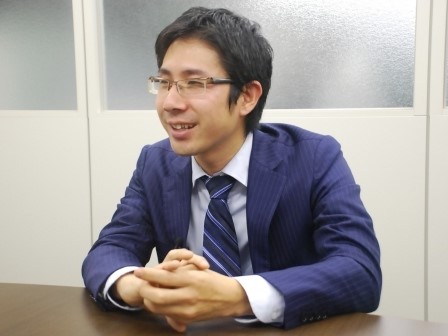By Nick Woolsey (CIR Tottori-ken, 2011-13), an engineer based in Japan who works for Eureka, a Japanese company.
 The time is right to start your career in Japan
The time is right to start your career in Japan
The JET Program has always worked very hard to provide its participants with a smooth entry into Japan, support during their tenure, and facilitation for the transition back to their countries of origin. It is a wonderful and incredibly organized teaching exchange system, but the primary pattern is, however, to finish the program and life in Japan at the same time. Every year, a large percentage of those participants ending their tenure feel pained as they leave the country they have grown to love, and a few find ways to stay or come back. That is about to change.
The few JETs (and other foreigners) who brave working life in Japan after their initial contract have found it difficult to find gainful employment outside the education industry because there simply hasn’t been demand for it. Other than the JET Program, the education system in its entirety is also highly organized, standardized, and rigid in its timeline: by far the optimal time to find employment is directly after high school or college. Even an extra year or two spent studying abroad or getting a master’s degree has been looked down upon more often than one would suspect. In addition, changing companies was seen as almost as disgraceful as a samurai betraying one’s feudal lord, and there was no such thing as work/life balance because life was one’s work and one’s company. Japanese companies have been designed to hire from this homogenous talent pool and allow for gradual training and growth with seniority. Participants in the JET Program were not meant fit in this system.
 Since finishing the JET Program in 2011, I have learned that at the ground level, small and medium sized businesses, that system is now finally increasingly ready for change. While not newsworthy yet, Japan’s workforce crisis has started. A number of social and economic factors, all heavily linked to the aging population, seem to be causing the Japanese human resource talent pool to shrink and maybe worsen. Small businesses especially feel this blow because the best hires often go to larger companies, whose human resource demands have not decreased. As the total number of working people decrease, therefore, larger businesses take up an even greater percentage of talented employees, leaving less desirable employees and unmet demand in human resources.
Since finishing the JET Program in 2011, I have learned that at the ground level, small and medium sized businesses, that system is now finally increasingly ready for change. While not newsworthy yet, Japan’s workforce crisis has started. A number of social and economic factors, all heavily linked to the aging population, seem to be causing the Japanese human resource talent pool to shrink and maybe worsen. Small businesses especially feel this blow because the best hires often go to larger companies, whose human resource demands have not decreased. As the total number of working people decrease, therefore, larger businesses take up an even greater percentage of talented employees, leaving less desirable employees and unmet demand in human resources.
In general, under performing or unmet demand for human resources lowers profitability. In the case of a large business, however, if a few bad hires are made or a few positions are left unfilled, the percentage of total output is not always greatly affected. Think about a company of 10 people who has one person at retiring age. If they find a person half as good, the whole company will lose 5% of its human resource output! If they can’t find anyone, they lose 10%! Now they are starting to need us!
 I didn’t realize my potential utility yet as a JET in 2010, however, when deciding not to renew my contract. I was positive I was finished teaching, but, among the job postings that required English language skills, results for English teachers of some kind vastly outnumbered any others. Of the jobs remaining, the number requiring a native proficiency in Japanese, aimed at Japanese speakers of English, also greatly outnumbered those that did not . Out of that pool, I had to narrow it down to ones I was interested in, qualified for, paid enough to live, was not going to work me to an early grave, and provided skill growth opportunity. That number was small. In the end, out of hundreds of postings viewed, and dozens of applications sent, there were less than a handful of interviews to do, and only one proved to be mutually agreeable.
I didn’t realize my potential utility yet as a JET in 2010, however, when deciding not to renew my contract. I was positive I was finished teaching, but, among the job postings that required English language skills, results for English teachers of some kind vastly outnumbered any others. Of the jobs remaining, the number requiring a native proficiency in Japanese, aimed at Japanese speakers of English, also greatly outnumbered those that did not . Out of that pool, I had to narrow it down to ones I was interested in, qualified for, paid enough to live, was not going to work me to an early grave, and provided skill growth opportunity. That number was small. In the end, out of hundreds of postings viewed, and dozens of applications sent, there were less than a handful of interviews to do, and only one proved to be mutually agreeable.
I shot a couple emails out to register with Japanese recruiters, and one of them actually responded that he might have something for me and wanted to meet in person. It turned out, that the recruiter was the son of the exiting CEO, and brother of the current manager/future CEO of a small systems engineering firm in Yoyogi called Eureka. The position available, however, was as a computer programmer: no prior experience necessary. When asked if I was interested, I could not give a definitive answer, because how could I have developed an interest in something I had almost no knowledge of. I had no idea what systems engineering was. Despite my uncertainty, the recruiter seemed convinced that it would be a good match so I agreed to come back and meet with the manager.
 I was to be a test run to see if English/Japanese speaking foreigners could competitively to do exactly the work as their Native Japanese counterparts. The reason the company would take the unusual step of investing with a foreigner as an employee rather than a more predictable risk with a Japanese one is because Japanese small and medium sized businesses are having a lot of difficulty finding quality Japanese employees. I decided to accept the officer!
I was to be a test run to see if English/Japanese speaking foreigners could competitively to do exactly the work as their Native Japanese counterparts. The reason the company would take the unusual step of investing with a foreigner as an employee rather than a more predictable risk with a Japanese one is because Japanese small and medium sized businesses are having a lot of difficulty finding quality Japanese employees. I decided to accept the officer!
Over the first few months, I got introduced to computer programming, and started to understand some of the major challenges facing our company, finding a supply of human resources being a major one. After one of our company meetings, when Mr. Aoyama was lamenting the tediousness of trying to double the company size when finding even one new employee was difficult, I told him I knew exactly where to find some. They had been through an extensive application process in the past, worked as public employees, possessed Japanese language skills, were good with people, highly motivated, and didn’t have a lot of other options in Japan at the moment.
He was stunned that in the first week I had gotten over 50 applications via Google Drive, when it took them a year to get more like 10 through mostly paid services and events. Our booth at the JET Career Fair was as slammed as Apple Computers. We came to the mutual realization that there is a supply of talented people grudgingly turned away from the country every year during a labor shortage. That makes no sense. So instead of hiring 1-2 new employees, after 3 months with 80 applications, 50 initial interviews, and 40 final interviews and tests we got halfway to our goal of doubling the company size and hired 16 people. Mostly ex-JETs without programming backgrounds. We call ourselves the “foreigner brigade” or in Japanese “外国人部隊(gaikokujin butai).”
Who knows what the end result will be, but, we are turning heads in the small business world in Tokyo. Are we going to be profitable? Can management handle the majority of employees suddenly being non-native speakers? Will everyone really learn to program? Or, are we ahead of the curve? After going a little overboard, we are probably finished hiring for now, but, our partners are watching and some are even moving to start the same kind of project themselves. They have the same human resource problem, and would like to hire foreigners like you, but just do not know how. We hope to be able to help them get started, which is why we will be posting for them on JETWit now and then.
In small businesses in Japan, the demand for profit generating labor is there, so is the talent pool, and I think the courage to change the existing system is going to come out of necessity very soon. Along with the good people at JETWit, we will do our best to help it along by finding as many jobs for you guys as we can.


one comment so far...
Awesome! I wish I could just “like” this post…